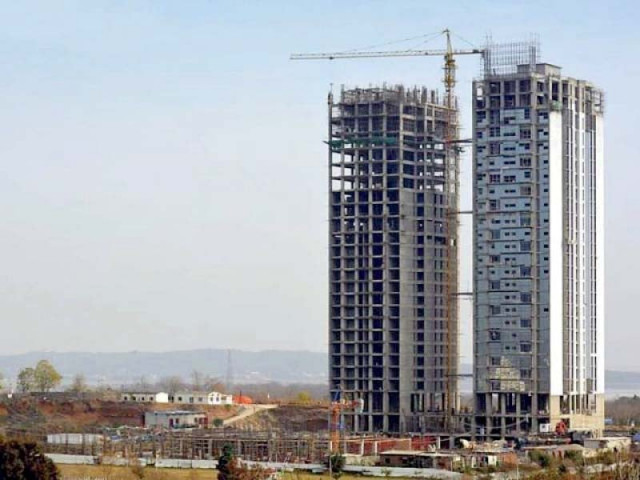Real estate bubble should burst
Investment in real estate a deviation from productive to unproductive sectors of economy

It may sound strange, but it has some logic. To start with, it is hard to find an economic rationale for such a huge level of investment, speculation, fluctuation and activity in real estate in Pakistan.
It appears that the only profitable, or rather economic activity, is investing in real estate and that too mostly in speculation on plots and new developments rather than the construction industry.
Most of the foreign remittances, national savings, and sometimes even institutional investments are channeled into real estate that, apparently, offer short-term and higher returns but this is a deviation from productive to unproductive sectors of the economy.
What does the economy, on the whole, gain from such speculative investments? It rather has a huge opportunity cost.
Firstly, if personal savings and foreign remittances are invested into productive sectors such as the industry or infrastructure, it would have long-term positive impact, though short-term returns may be lower.
People are even ready to take loans, formal and informal, to invest in plots in anticipation of quick and high returns.
Secondly, the speculative real estate sector has attracted plenty of capital that should
otherwise have been deployed in industrial or services sectors.
Many of the businesses have used their working capital and/ or concessional finance that is available for some industrial sectors, to invest in real estate. It makes sense to borrow at 10% lower than the market rate, due to concessional finance, and repay the loans on time without any risks associated with normal businesses.
Thirdly, more and more of institutional investors, both from public and private sectors, have channeled their investment into real estate speculation in pursuit of quick and higher returns, thus redirecting the finance that may have been utilised for more productive sectors.
There is a need for more housing and real estate developments in Pakistan but certainly no need for speculation and an overheated market. This situation is also leading towards artificial increase in prices of housing that is creating yet another divide between the haves and have-nots.
Counterintuitively, the so-called investment in real estate sector at present is working against the supply of much-needed affordable housing. It has become a mere channel of multiplying money for those who have it.
It may not be practical to stop the investment in real estate but some of the measures may be adopted to at least stop the speculative and unproductive investment.
Firstly, in order to attract the retail investors towards productive sectors, the government may design financing vehicles that are secure, attractive from the returns perspective and targeted at specific projects so that investors may have a sense of contribution towards national development. The blanket issuance of bonds, like the existing ones, may not serve the purpose.
Secondly, the institutional investors may be regulated through putting strict limits or quotas on their funds allocation to the real estate investment, particularly if it is not in construction.
Thirdly, the existing regulatory instruments such as the capital
gains tax need to be increased for gains within five years of purchase in order to manage speculative transactions.
Fourthly, the Real Estate Investment Trusts (RIETs) should be supported and encouraged in order to provide a better investment vehicle for those who are interested in this sector. This will also result in more structured investment, through RIETs, in real estate development and avoid many speculative transactions.
Fifthly, the big real estate developers should be asked not to allow transactions of so-called “files” of plots. It may be even better if the developers launch schemes only when the plots are ready.
Sixthly, the banks and other financial institutions should keep an eye on the working capital or concessional finance that is deployed in real estate rather than the intended use in businesses.
On a realistic note, the above mentioned points may be a wish list as there are many beneficiaries of this real estate bubble, including those who should regulate it.
A paradigm shift is not likely through regulatory intervention but it
appears that the market
is ready for a self-correction.
The existing levels of speculation and over-heating of the real estate market is not sustainable. It should, and will, burst. There is no need to worry about this as the impact of such a burst would be negative only for the speculative investors but would be good news for the economy as a whole, and particularly for those citizens who are genuinely interested and need affordable and reasonable housing.
The writer is an international economist
Published in The Express Tribune, August 8th, 2022.
Like Business on Facebook, follow @TribuneBiz on Twitter to stay informed and join in the conversation.



















COMMENTS
Comments are moderated and generally will be posted if they are on-topic and not abusive.
For more information, please see our Comments FAQ